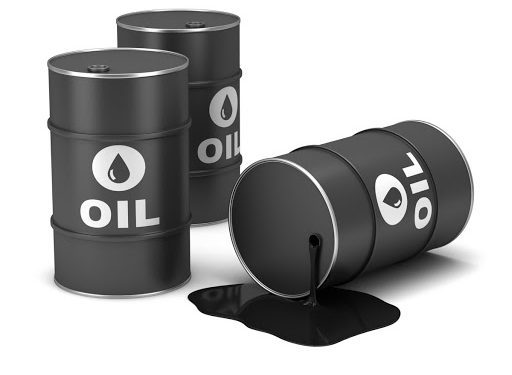Plastic Likely To Fuel Oil Demand For Years
As Big Oil worries about the looming threat of renewable alternatives, with governments and international organizations putting pressure on countries and companies to curb fossil fuel production, petrochemicals will become increasingly important.
With oil majors continuing to invest in oil and gas projects, they want to be sure that their new exploration and production operations pay off in the long run, an issue that’s becoming increasingly uncertain. However, as the demand for petrochemicals increases worldwide, energy firms can be safe in the knowledge that if oil demand in some sectors wanes there will still be a use for their ‘black gold’.
When we think about oil, we often think about it as an energy source, giving little consideration to the other ways in which it’s used. But much of the oil from around the world actually goes into producing everyday products such as clothing, tires, digital devices, packaging, detergents, and fertilizers. In 2018, petrochemical feedstock accounted for around 12 percent of global oil demand. This is a figure that is expected to increase substantially over the next few decades, as experts expect 10 million metric tonnes of growth in the petrochemicals industry every year between now and 2050.
Big Oil is investing in petrochemical projects, particularly focusing on plastics, as demand is expected to increase substantially in the coming years. The International Energy Agency (IEA) predicts that plastics derived from fossil fuels will drive almost half of oil demand by 2050, as one of the last remaining sectors to decarbonize. Judith Enck, Founder and President of the nonprofit organization Beyond Plastics, believes “Plastics is the Plan B for the fossil fuel industry.”
Plastics are commonplace in the developed world, with governments now planning to curb the use of certain products such as single-use plastics. But as energy firms invest in expanding their petrochemicals business, many are aiming their products at the Asian and African markets, where they expect demand to continue increasing. Most of these plastics are currently being produced in the U.S. and the Middle East, with China being the biggest importer.
But many are concerned about the increase in the production of plastics. Estimates suggest that only 9 percent of the plastics ever created have been recycled, with most products ending up in landfills. A growing number of people surveyed around the world say they support the banning of single-use plastics as environmental organizations highlight the growing impact of waste plastic on nature and wildlife.
But now, engineers at West Virginia University think they may have the solution. Working alongside the U.S. Department of Energy in a public-private partnership, the engineers are attempting to increase the rate of recycling for single-use plastics and convert them into valuable aromatics used in the production of petrochemicals.
The main issue with recycling plastics through this process is it generally releases high amounts of greenhouse gasses into the atmosphere. The researchers are aiming to use a simple one-step microwave catalytic process to upcycle single-use plastics into high-value benzene, toluene, and xylene (BTX) for use as petrochemical materials.
Braskem, Wang, Research Assistant on the project, explains, “the produced ethylene and BTX aromatics from plastic upcycling can be used as feedstocks to re-make plastics.” Further, “That will reduce demand on fossil fuel-derived ethylene and BTX aromatics from conventional petroleum refinery, leading to a reduction in greenhouse gas emissions,” he said.
As uncertainty around sustained oil demand over the coming decades grows, with much depending on the development of renewable alternatives, Big Oil wants to make sure their new investments will still see a return even as demand wanes. Many energy firms had a glimpse of what decreased demand might mean for them as the pandemic restrictions of 2020 came into place, sending oil demand and prices plummeting. By developing their petrochemicals portfolio and converting oil into other high-demand products, companies can ensure that even faced with uncertainty they keep their business profitable.
While researchers are working hard to develop more sustainable petrochemical alternatives, such as bio-based plastics and specialty chemicals, these products are still much more expensive than fossil fuel-derived products. Despite a huge recent drive to develop renewable energy alternatives, petrochemical alternative production is still in its infancy, meaning that oil and gas firms are likely to benefit from the gap in the market beyond the lifespan of fossil fuel-generated energy.
But not all governments are on board with Big Oil’s idea to focus on petrochemicals, as they strive for the decarbonization of national economies. In Antwerp, Belgium, British company Ineos is facing opposition over the construction of a giant plastics plant. Owner of Ineos, Sir Jim Ratcliffe, announced a $3.4 billion investment in the plant in 2019, with the intention of expanding the firm’s petrochemicals business in Europe.
The plant would mark the biggest petrochemicals investment in Europe, and Ineos expects it to contribute 450 jobs on-site and 2,250 in associated companies. Construction is planned to begin later this year, but several NGOs and the Dutch province of Zeeland question whether the new ethylene “cracker” will lead to an increase in the production of single-use plastics as well as the release of more nitrogen into the atmosphere. Seeing whether this project goes ahead or not could determine the development of similar projects by other oil and gas companies in the future.
Big Oil is betting big on petrochemicals as a backup for oil being used purely as an energy source, as the growth of the renewable energy sector threatens to dethrone some of the world’s energy giants. However, many oil and gas firms are likely to face strong opposition from governments and climate activists in the process, potentially driving some to look for innovative technologies to establish lower-carbon practices without giving up on oil.



